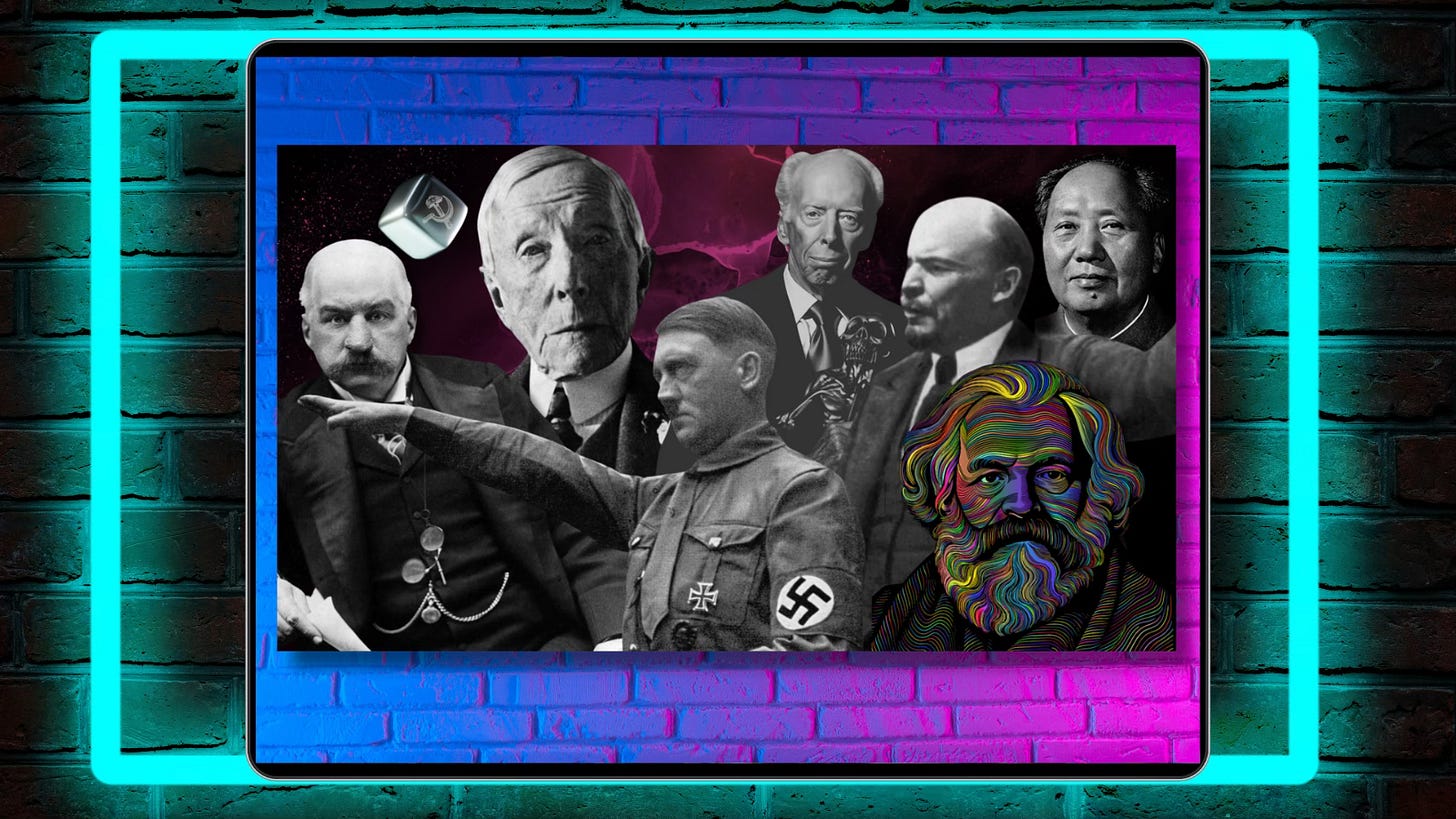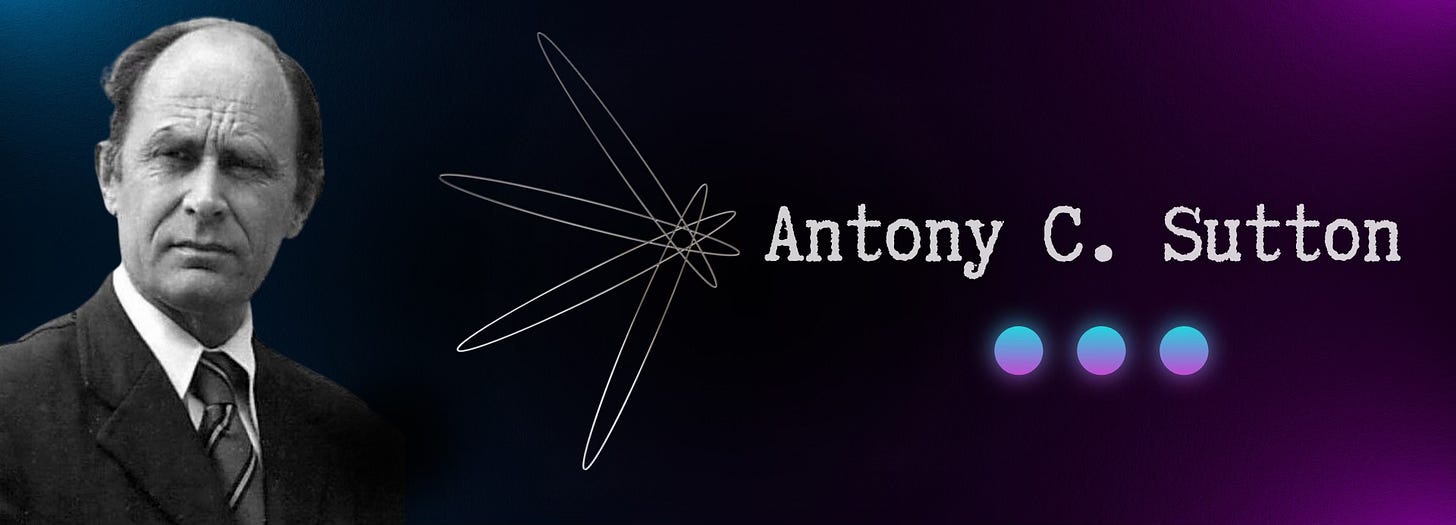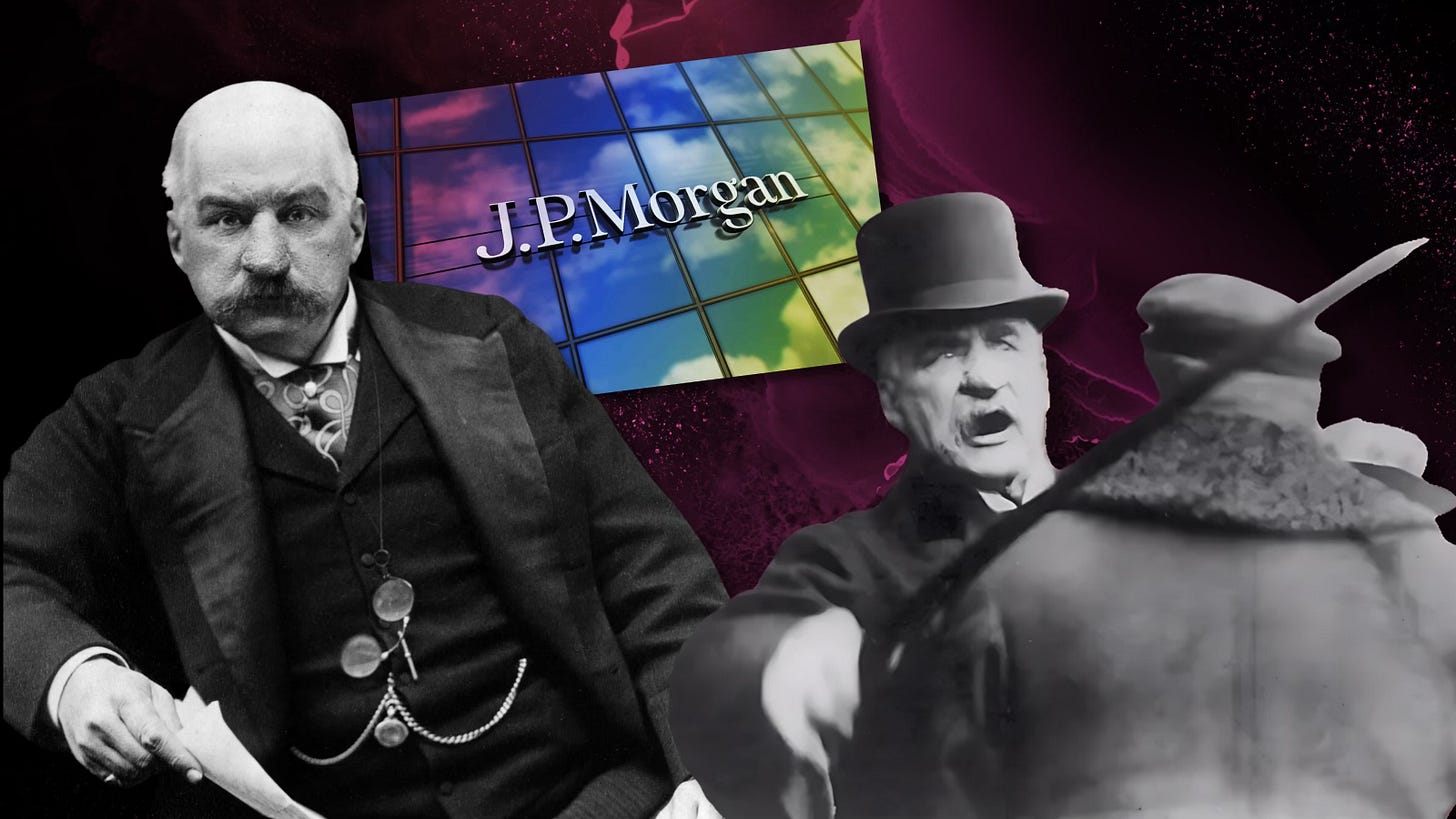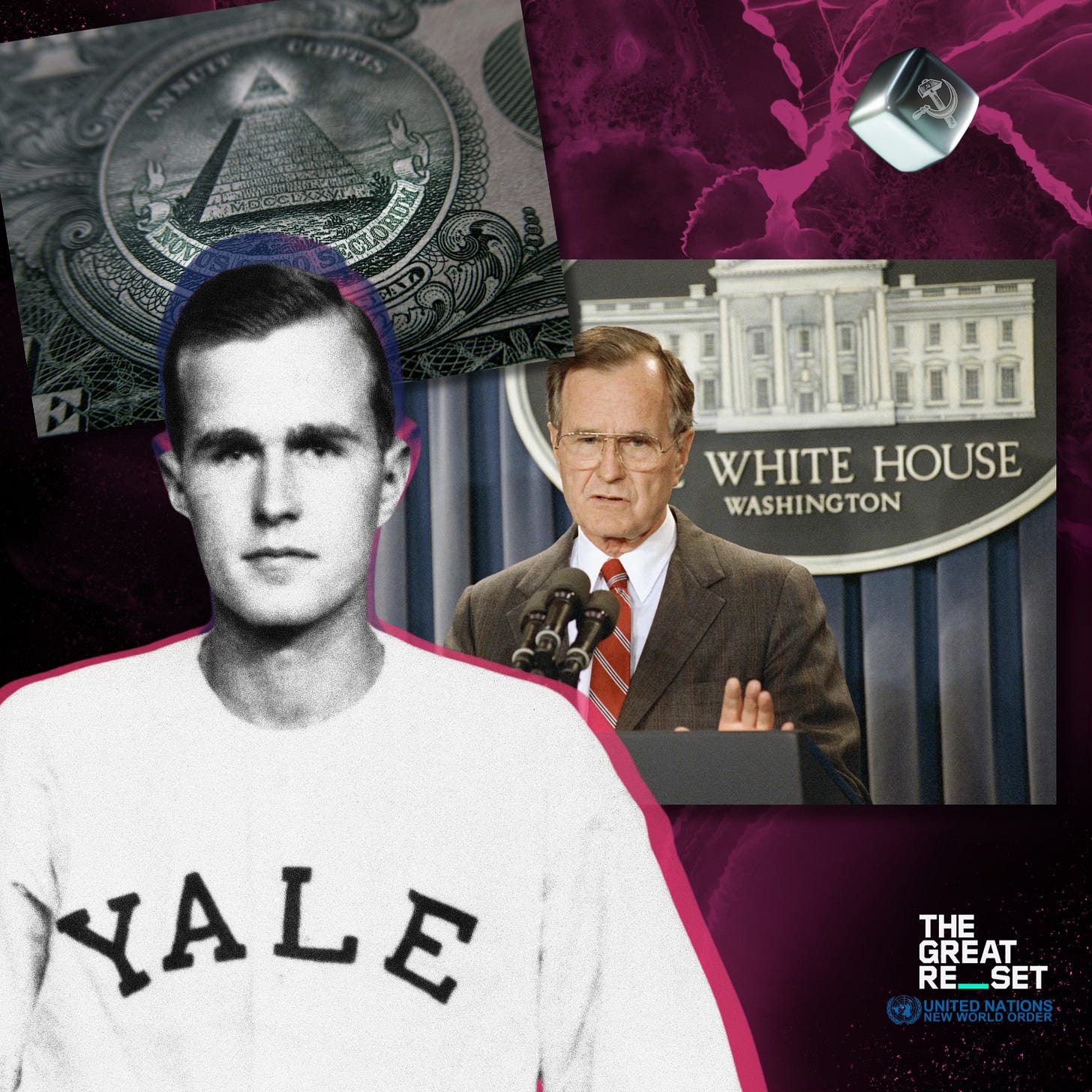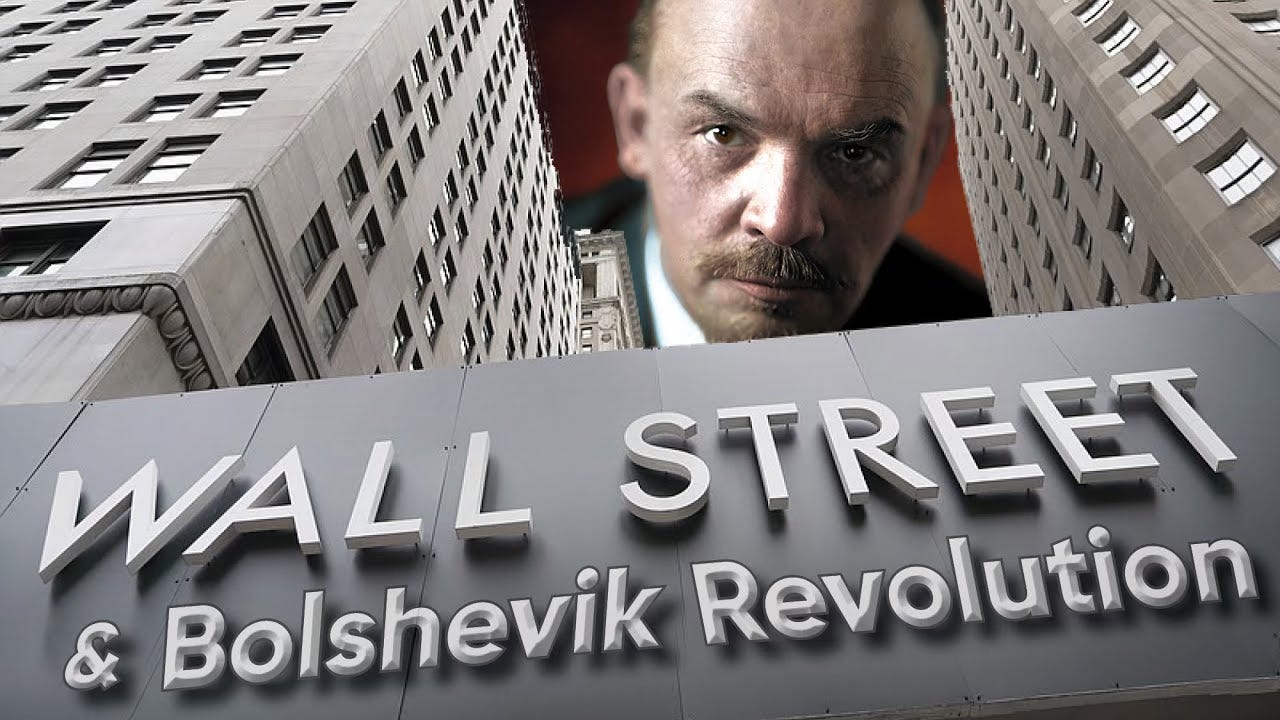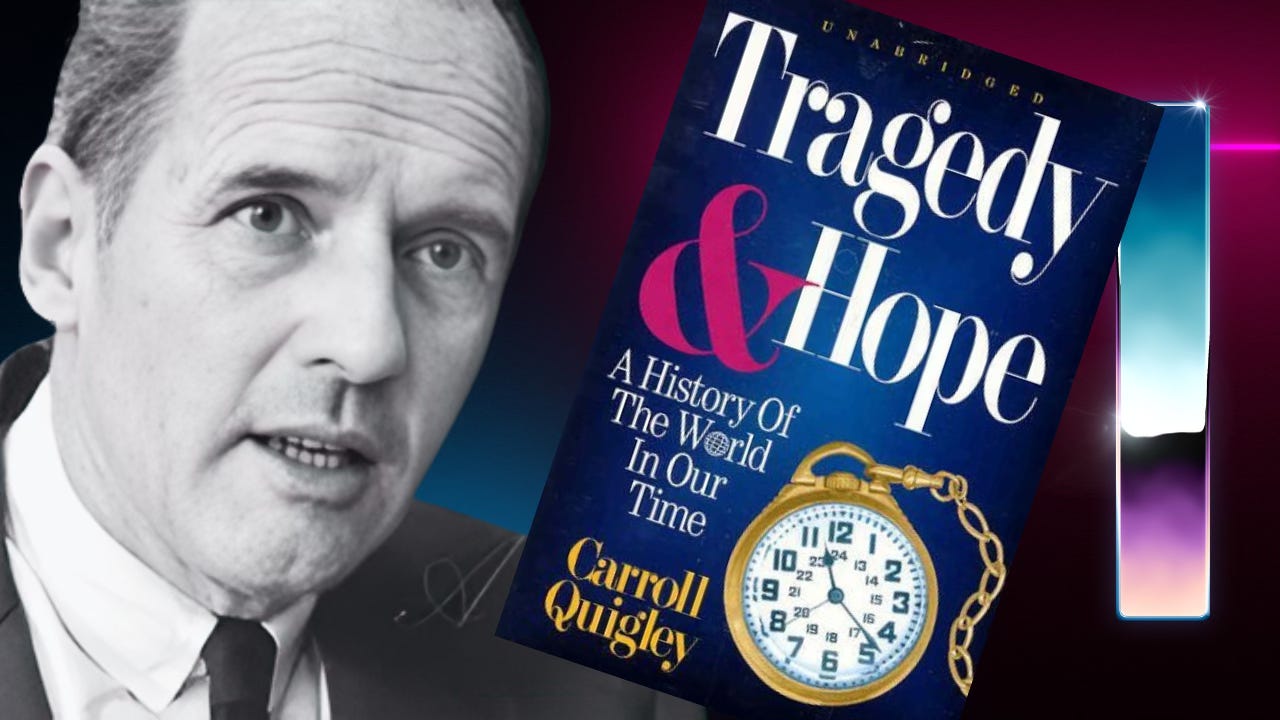Tragedy and Hope: How American Elites Built The Soviet and Nazi Regimes
Two Important Authors Who Exposed The Globalists Shaping World Events
Conflict and chaos for profit and power
We were taught that Russians, Nazis, and socialism were our enemies. However, research has revealed that major Wall Street financiers were involved in the development of the Soviet Union, Nazi Germany, and other regimes that were supposedly U.S. enemies.
Antony C. Sutton and Carroll Quigley, for different reasons and operating from different perspectives, arrive at the same conclusion: the evidence suggests that major funding for both sides of Europe's wars and ideological conflicts, including both world wars, came from U.S. sources.
As well, we know that Lenin was the first to put Marx’s ideas into practice after having been trained up in Germany and then sent to Russia in 1917 to make the massive Bolshevik Revolution happen. Russia becomes a major force in World War I and World War II.
“Look carefully then how you walk, not as unwise but as wise, making the best use of the time, because the days are evil.” (Ephesians 5:15-16)
Our need to be grounded in God’s word, for wisdom and careful living in a truly perverted age is greater now than ever before. For the love of truth and our Christian duty to understand our times, we suggest the works of Carroll Quigley and Antony Sutton to supplement your library.
Antony C. Sutton: Wall Street and The Bolshevik Revolution
The common narrative in American education describes the Bolshevik Revolution as a grassroots communist uprising. However, Antony Sutton reveals that Lenin and Stalin received significant financial support from Western bankers, especially Wall Street investors.
Antony C. Sutton (1925–2002) was a British-American economist and historian known for his controversial research on Western financial elites. His work challenged accepted narratives about political movements and implicated wealthy elites, including those controlling American academia. Unsurprisingly, after publishing National Suicide: Military Aid to the Soviet Union, which criticized U.S. policies aiding the Soviets, Sutton was asked to leave Stanford in 1973.
Despite this, Sutton continued to research, write, and lecture until his death in 2002, producing dozens of books and giving hundreds of lectures and interviews. Sutton’s trilogy Western Technology and Soviet Economic Development (1968-1973) argues that Western support was crucial to Soviet economic growth from 1917 to 1965.
Key points in Sutton’s work include:
Sutton provides evidence of direct Wall Street funding to the Bolsheviks, including critical resources. He explains that Wall Street sought control of the Russian market, oil concessions, and to counter British influence. Sutton identifies influential Americans, including the Union Banking Corp. and the family of George H.W. Bush, as key funders. Western, particularly American, financial support helped establish the U.S. and U.S.S.R. as superpowers, shaping 20th-century geopolitics for profit and control.
Case In Point: BRICS+ nations are [nothing less than the creation of a new form of “global economic governance” by globalists] see articles below.
Sutton’s findings suggest that the appearance of conflict and the impending threat of nuclear war between the U.S. and U.S.S.R. enabled circumstances for massive profit generation and gave these Machiavellian elites near full control of the European political chessboard.
LINK: READ Wall Street and The Bolshevik Revolution by Antony C. Sutton
Sutton’s Western Technology and Soviet Economic Development (1968-1973) is a trilogy examining how Western technology and industrial support were crucial to the economic development of the Soviet Union from 1917 to 1965. Sutton argues that despite the ideological divide, behind the scenes, Western elites were eager to take advantage of the opportunity presented in a flagging Russian empire. The book covers several key points:
Sutton details how the revolution was facilitated by these bankers and power brokers who provided the Bolsheviks with the necessary funds and resources to establish the massive communist bloc. The region is rich in natural resources and considered to be the breadbasket of Europe. These cynical financial elites saw the revolution as an opportunity to destabilize the region to take advantage of the massive potential for profit, and ultimately, to manipulate the emerging Soviet state to serve their own economic and political interests.
Defining terms:
Bolsheviks: A radical faction of the Russian socialist movement, led by Vladimir Lenin, aiming to create a centralized, disciplined party to lead the working class in establishing a communist state. They were key in founding the Soviet Union. The term "Bolshevik" means "majority" in Russian.
Russian Revolution: A series of political and social uprisings in 1917 that ended Tsarist rule. The February Revolution led to Tsar Nicholas II's abdication and a provisional government.
Bolshevik Revolution: The October 1917 phase of the Russian Revolution, where Lenin's Bolsheviks overthrew the provisional government to establish a communist state.
Background: The Bolshevik party, led by Lenin, formed the first communist government, aiming for a classless society. Lenin nationalized industry and redistributed land. Under Stalin, the regime expanded, forming the Soviet Union.
No Good Deed Goes Unpunished
Sutton’s conclusions directly or indirectly implicated some of the same wealthy elites who control much of American academia. Unsurprisingly, he was asked to leave his position at Stanford in 1973 after the publication of his book National Suicide: Military Aid to the Soviet Union, which was highly critical of U.S. government policies that enabled the transfer of military technology to the Soviet Union.
Sutton knew it was a possibility that he would lose his post at Stanford, but he was not deterred. Sutton continued to research, write, and lecture on these topics until his death in 2002. In all, Sutton gave hundreds of interviews and lectures and wrote at least a dozen books exposing the forked tongue of the cynical, opportunistic Western banking elites.
Other controversial works by Sutton:
Wall Street and FDR (1975) investigates the financial and political connections between Wall Street and President Franklin D. Roosevelt, asserting that major financial figures influenced the New Deal policies for their own benefit.
Wall Street and the Rise of Hitler (1976) explores how American financial institutions and businessmen supported Adolf Hitler's rise to power in Germany playing a role in the shaping of Nazi Germany.
Trilaterals Over Washington (1978, with Patrick M. Wood) examines the influence of the Trilateral Commission, suggesting that it works to centralize power among a global elite, often at the expense of national sovereignty and democratic processes.
America's Secret Establishment: An Introduction to the Order of Skull and Bones (1983) discusses the secret society known as Skull and Bones, suggesting that it is part of a network of elites influencing American politics and global affairs.
The Best Enemy Money Can Buy (1986) argues that American industrialists and financiers provided crucial support to the Soviet Union during the Cold War, which, paradoxically, allowed the USSR to sustain itself as a rival to the United States.
The Federal Reserve Conspiracy (1995) critiques the origins and operations of the Federal Reserve, arguing that it serves the interests of a financial elite rather than the American public.
Sutton’s work is controversial due to its conspiratorial tone and selective sources. He challenged conventional views on 20th-century geopolitics, exposing the elite political and financial forces that supported and profited from brutal regimes.
His thesis in Wall Street and the Bolshevik Revolution and other works has been corroborated by historical revelations and researchers like Carroll Quigley. This suggests that the assassinations, revolutions, and wars of the 20th century didn't unfold as mainstream history portrays.
Carroll Quigley: Tragedy and Hope
Carroll Quigley’s Tragedy and Hope: A History of the World in Our Time (1966) is a key insider source on the "New World Order" of the early 20th century. Quigley argues that a network of financial and political elites, led by the Round Table groups and including figures like J.P. Morgan, shaped world events to establish a global system of financial control.
Carroll Quigley (1910-1977) was an American historian who taught at Harvard, Princeton, and Georgetown, mentoring future elites, including Bill Clinton.4 Quigley, a respected establishment figure, revealed how a small group of elites have significantly influenced global political and economic developments.
Quigley discovered this information when he was asked by certain members of The Round Table group to write a history of their historical achievements—what they believed were good works. Quigley was given unique access to their private archives and documents for his research which included meeting minutes, personal and professional correspondence, and other records that revealed, for example, involvement in the establishment of both the Soviet and Nazi regimes.
Quigley documented their involvement as mostly working behind the scenes in major historical events, such as the management of both world wars, stock market crashes, manipulation of currencies, regime changes in foreign countries, and the creation of international financial institutions, e.g. The World Bank and the International Monetary Fund and more.
Quigley's insight into the dynamics of power and the detailed research and primary source documentation provided in Tragedy and Hope have proven over time to be impeccable. His work provides a scholarly foundation that corroborates the work of Antony C. Sutton and many other researchers about the role of powerful financial interests in shaping political outcomes and major events of the 20th-century.
Differences
Despite some controversial claims, Carroll Quigley was respected as a serious academic and his works held up to scrutiny except for a couple important points.
First, Quigley believed the intentions of the group he profiled were, "largely commendable." But, as the New York Times reported in 1902, The Round Table movement claimed to have formed their society to "gradually absorb the wealth of the world."1 Lionel Curtis, a leader in the movement, supported the idea of a World Government with enforcement power, even collaborating with H. G. Wells on this vision.2 Sutton also takes a far more critical tone, seeing these influencers less as saviors and more like vampires operating at the expense of public good, extracting the energy and effort from peoples and nations for their own profit and power.
Second, Quigley asserts that their influence waned in the middle of the 20th century and no longer holds international sway as it once had. F. William Engdahl, in The Gods of Money, criticized this claim, agreeing with Antony Sutton, that it is very likely Quigley's original writing had been vetted to some degree before it was released to mitigate the implication of those still living.3 Engdahl and Sutton argue that American-based international finance certainly did not not decline before the mid-20th century, but rather, aware of the changing times, technology, and potential for exposure, these power players moved further into the shadows from where they operate and pull the levers of power to this day.
Shut it down!
In 1966, immediately after Tragedy and Hope was published, several establishment figures mentioned by Quigley attempted to suppress the book. Concerned that the book’s revelations could spark public outrage or lead to scrutiny of their activities, individuals within The Round Table groups closely linked to British and American political and financial interests sought to have the book “disappeared.”
The book’s publisher, influenced by the same elite networks, limited the book’s distribution, and eventually destroyed the printing plates making the book suddenly scarce. Intelligence agencies, including the C.I.A. and government officials in clandestine operations, also wanted the book suppressed.
Quigley himself expressed frustration in later interviews about the book being taken out of print and suggested that this might have been due to pressure from those who were uncomfortable with his revelations.
The works of Antony Sutton and Carroll Quigley are crucial for understanding the hidden influence of financial elites on 20th-century global events. While they offer different perspectives—Sutton being more critical and Quigley more sympathetic—both reveal how powerful networks shaped political outcomes, challenging conventional historical narratives and offering deep insights into the forces driving world history. There is nothing false about the word “conspiracy".
Citations:
1. a) Quigley, Carroll. Tragedy and Hope: A History of the World in Our Time. New York: Macmillan, 1966, 324.
b) Rhodes's Ideals: His Plans to Absorb the Wealth of the World. The New York Times, April 6, 1902. [New York Times Archive].
2. a) Curtis, Lionel. World Order. Oxford: Oxford University Press, 1942, 15-16.
b) Wells, H. G. The Open Conspiracy: Blue Prints for a World Revolution. London: Gollancz, 1928, 92-94.
3. a) Engdahl, F. William. The Gods of Money: Wall Street and the Death of the American Century. Wiesbaden: Edition Engdahl, 2009, 224-225.
b) ibid pp. 81-135.
4. Georgetown University. Bill Clinton Remembers Georgetown. Georgetown Magazine, Fall 2019. Accessed August 27, 2024. https://today.advancement.georgetown.edu/georgetown-magazine/2019/bill-clinton-remembers-georgetown/.
BRICS IN THE WALL OF GLOBAL GREED https://winteroak.org.uk/2023/07/17/brics-in-the-wall-of-global-greed/
For a free Bible and tracts (available to ship in the U.S.A. only) please email us
Download the Armor of Truth Mobile App Free
Armor of Truth, Inc is a 501(c)(3) Non Profit Organization
Donations are tax deductible
By supporting Armor of Truth you are helping to reach thousands of people daily with the Gospel of Jesus Christ and encouragement to persevere in a world that is hostile to the gospel. Please consider making a donation to help support this mission.
Support Armor of Truth, official donation page: Donate
CashApp $aotmin





